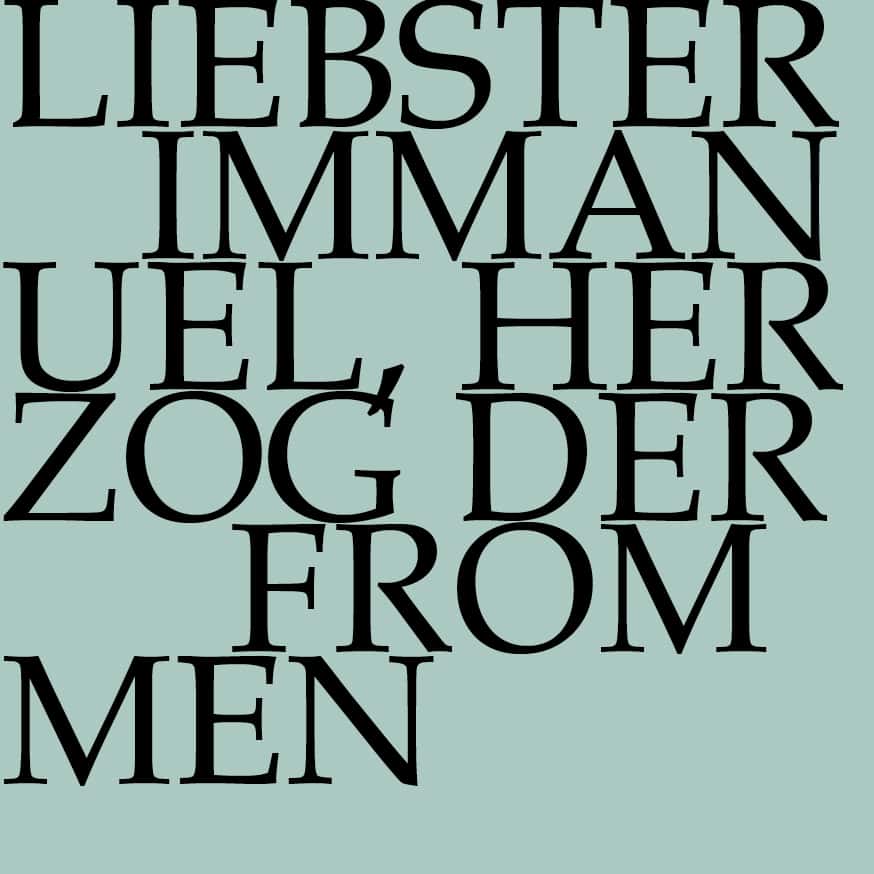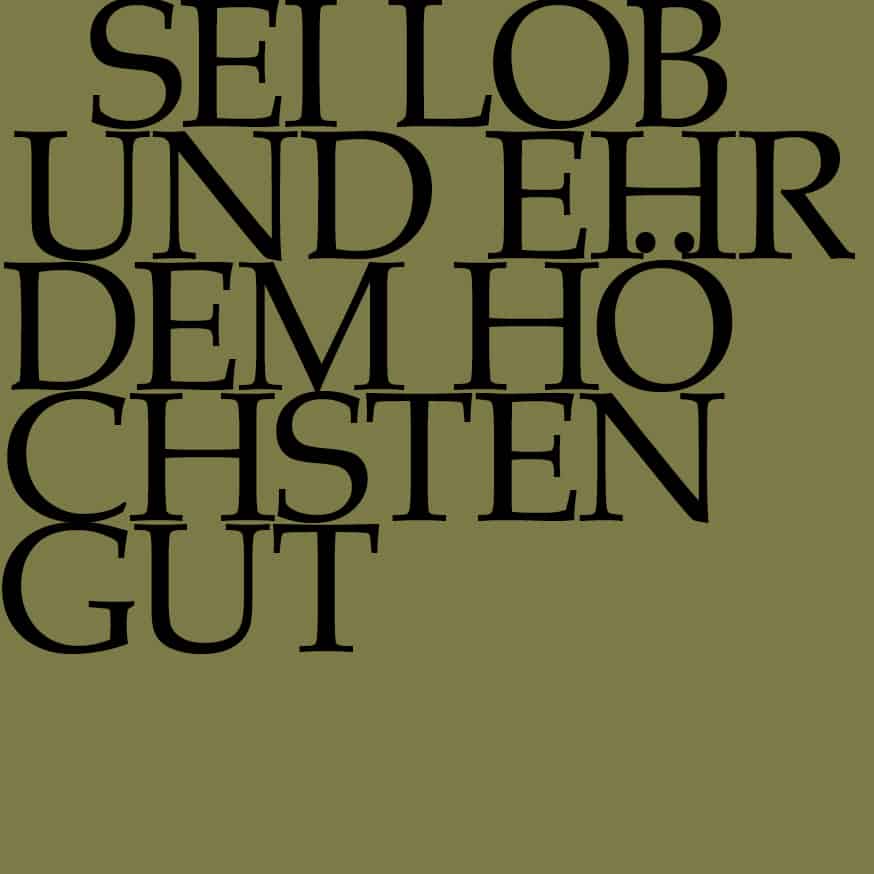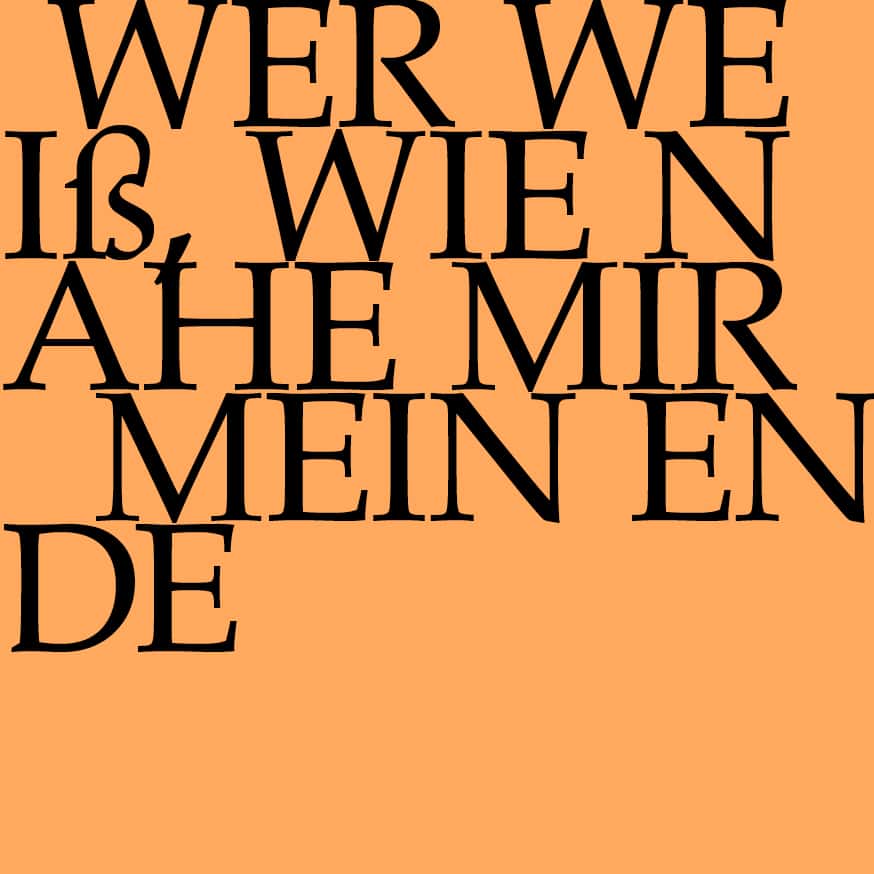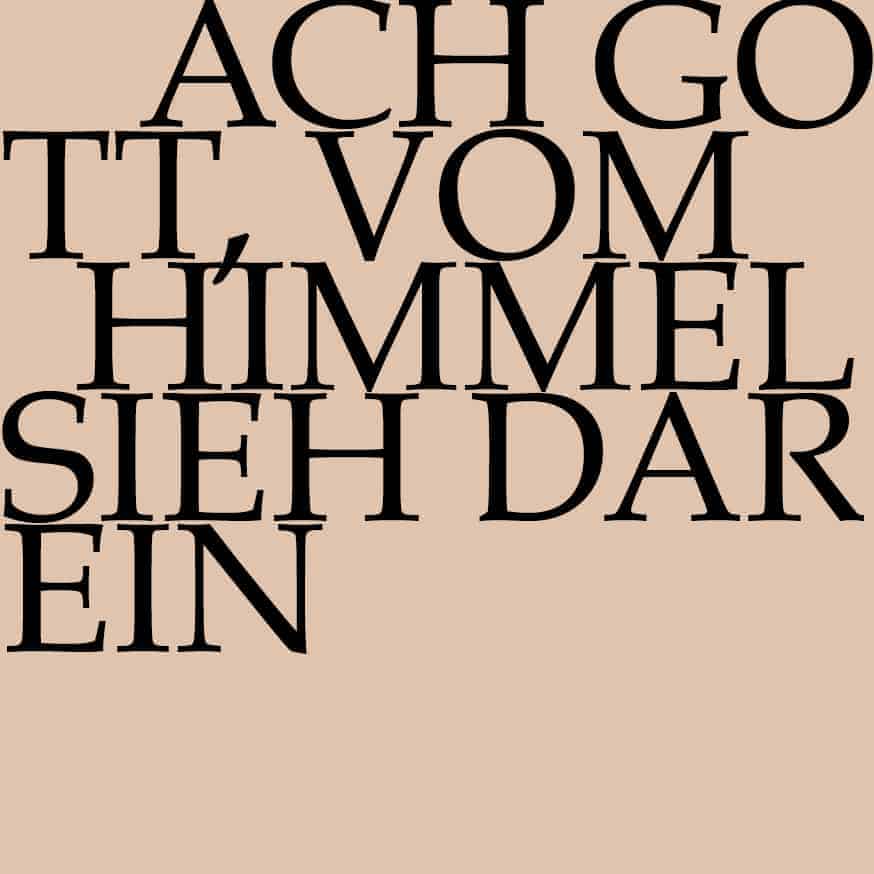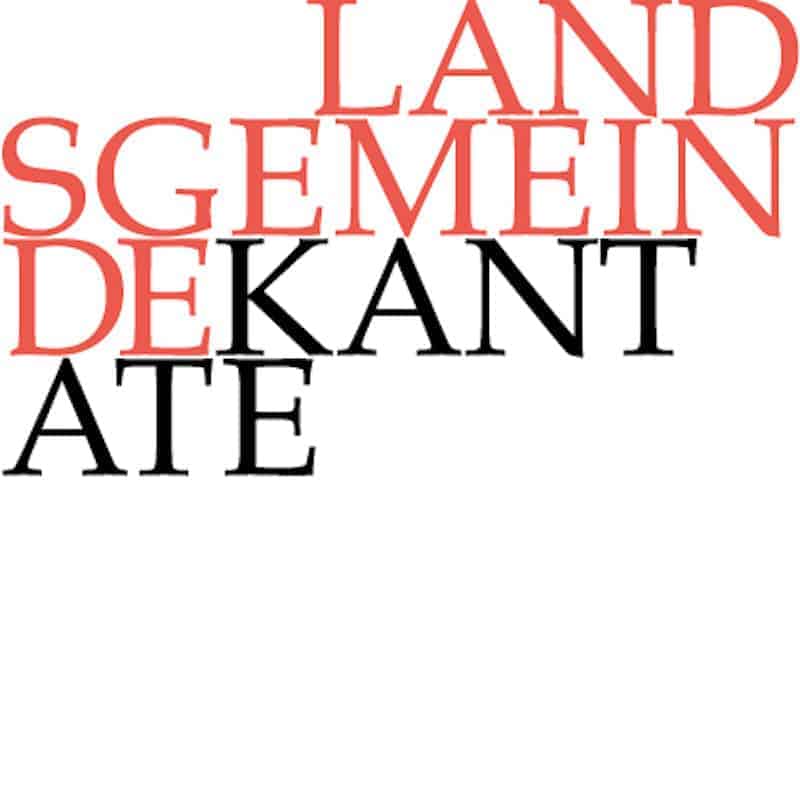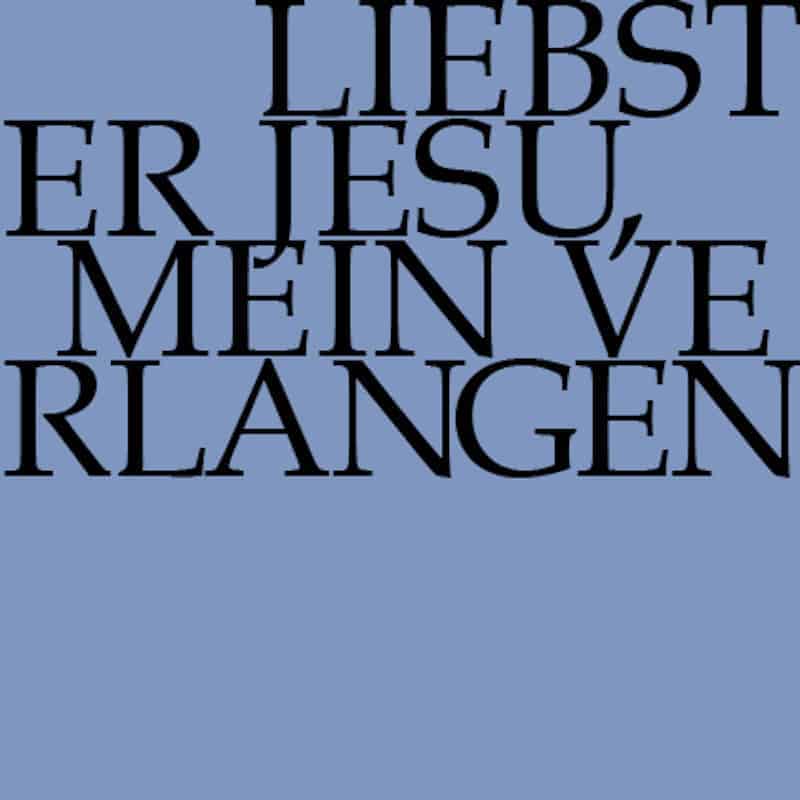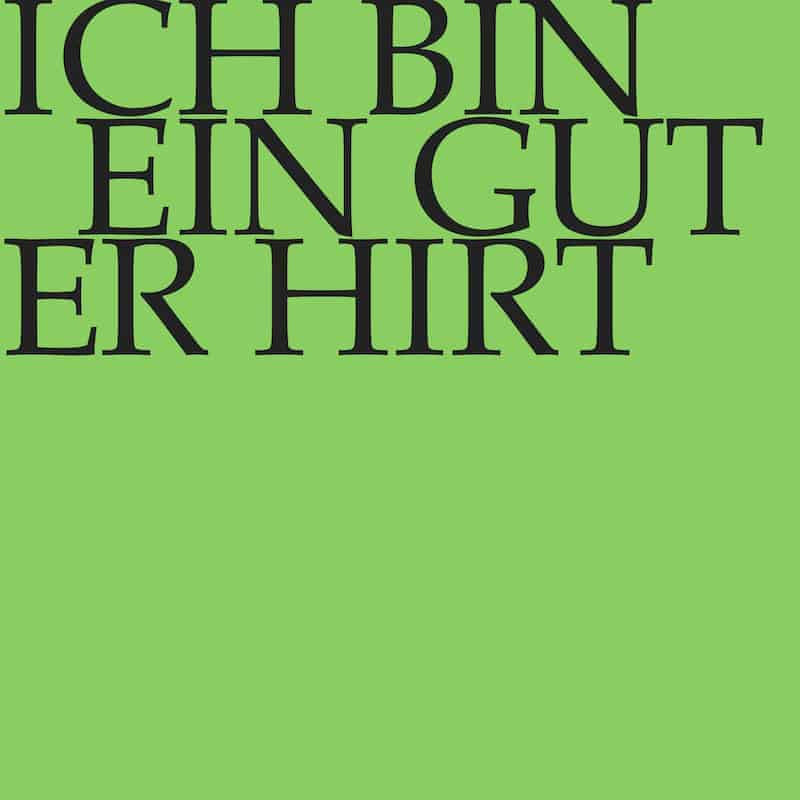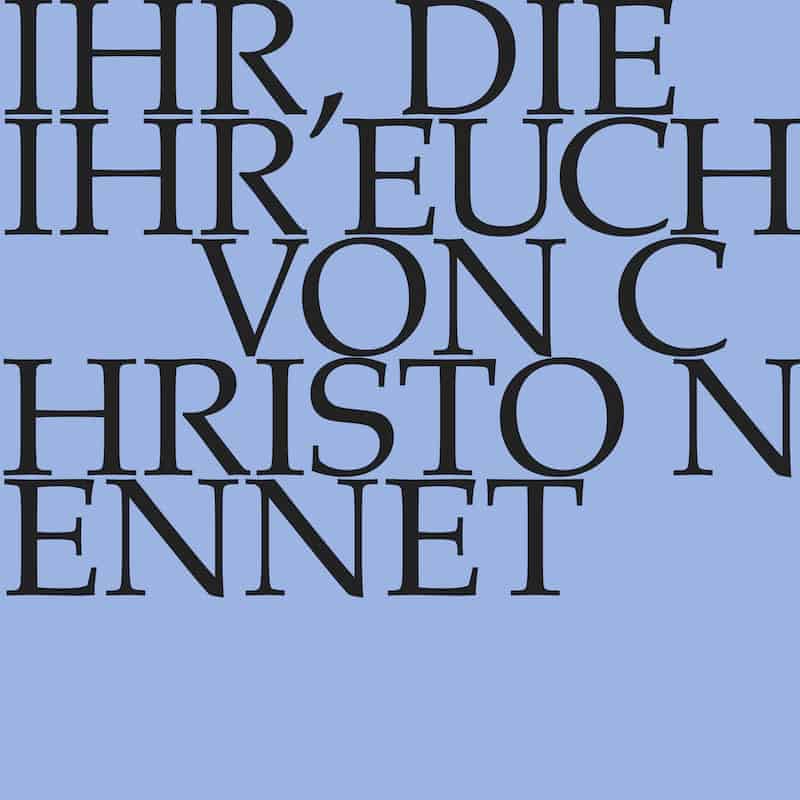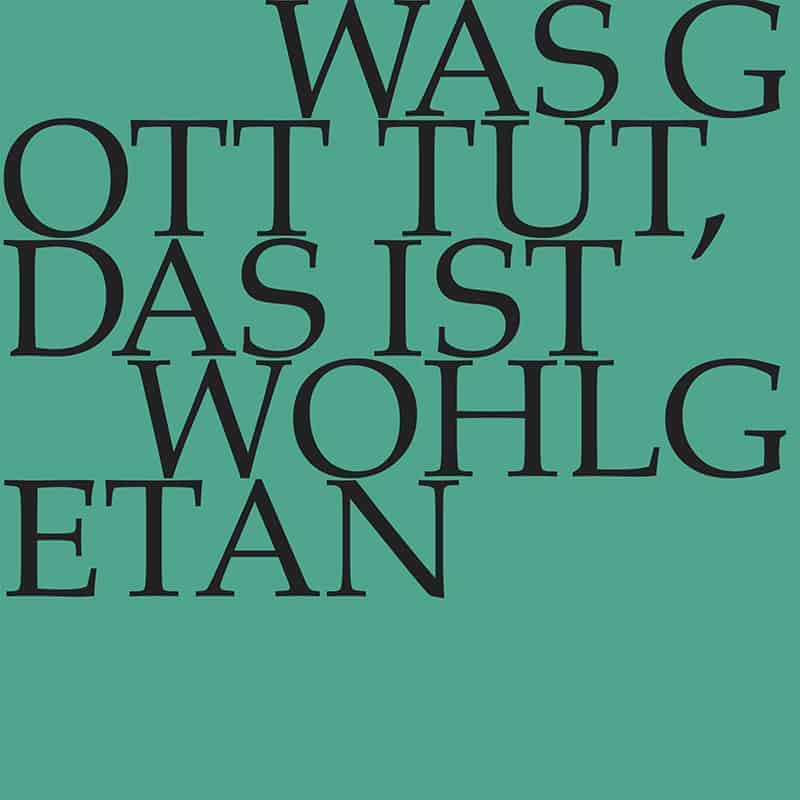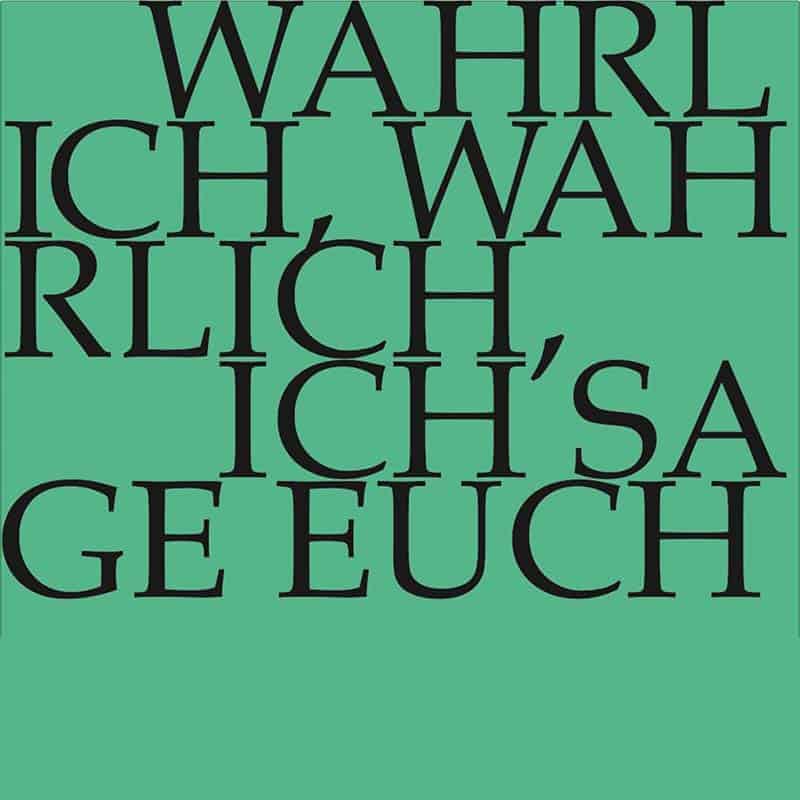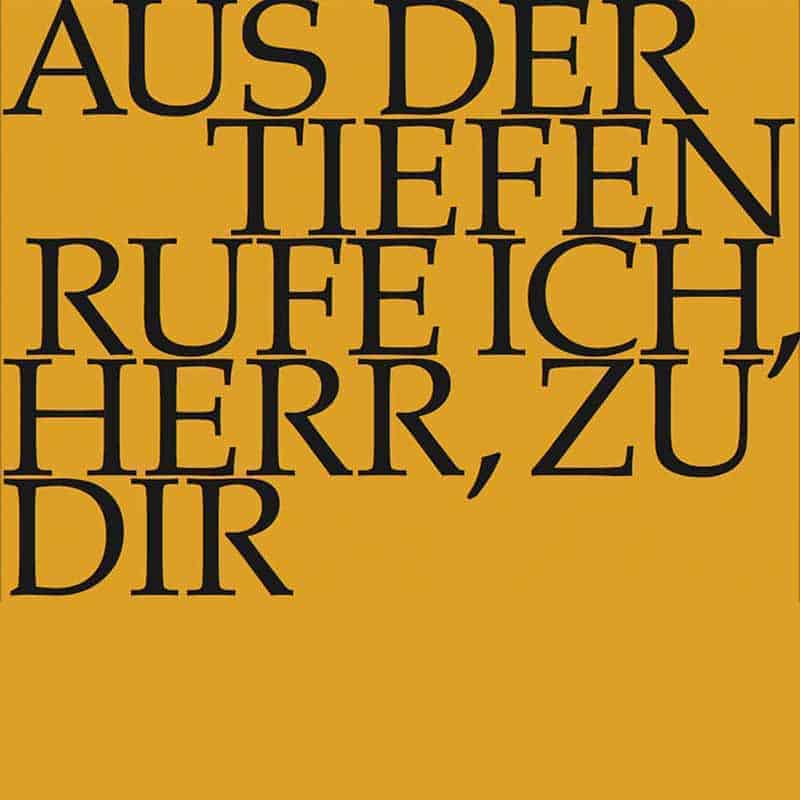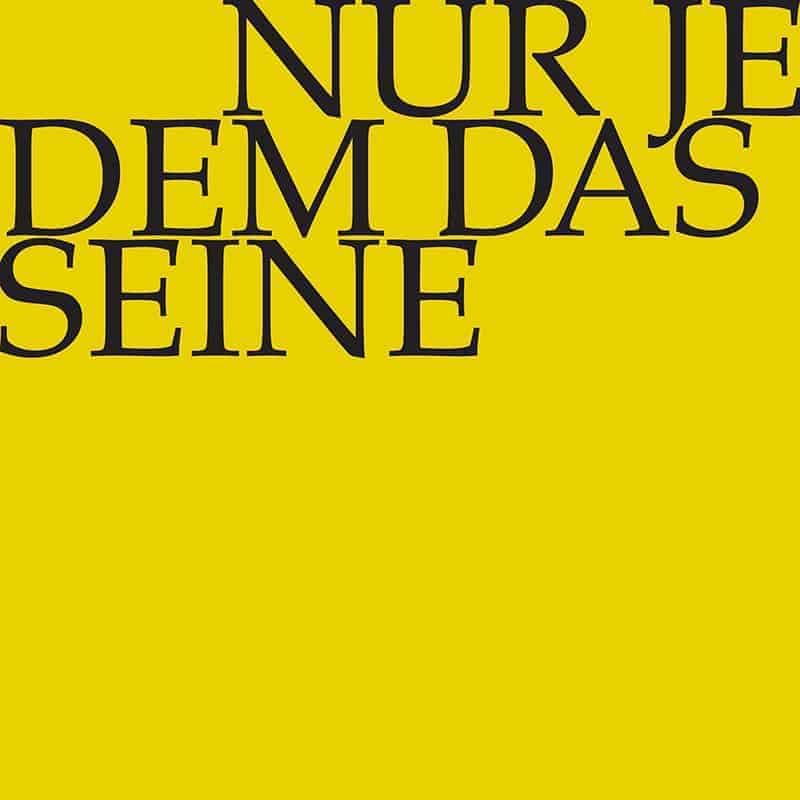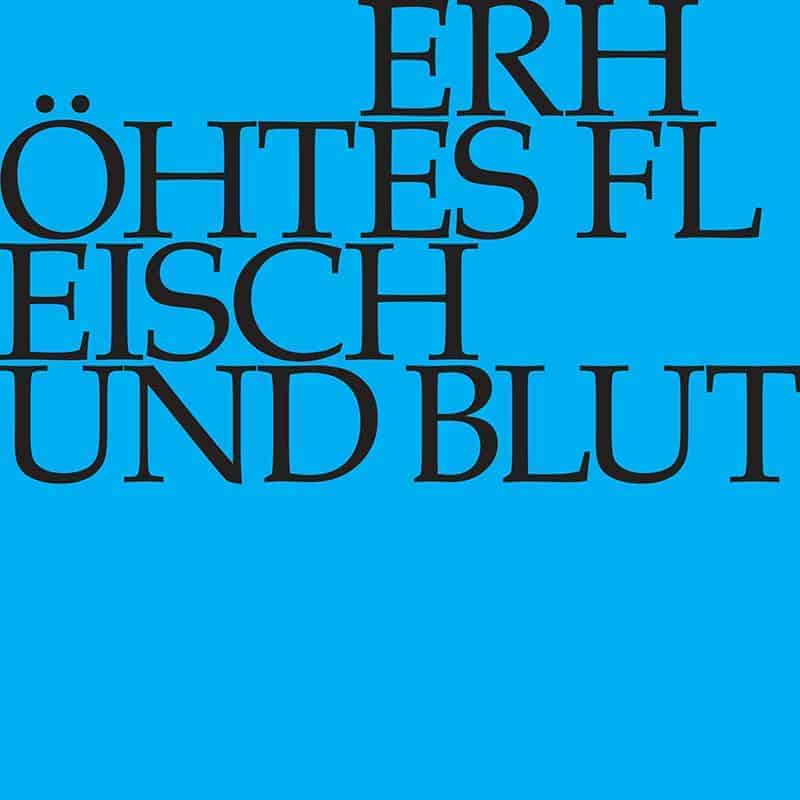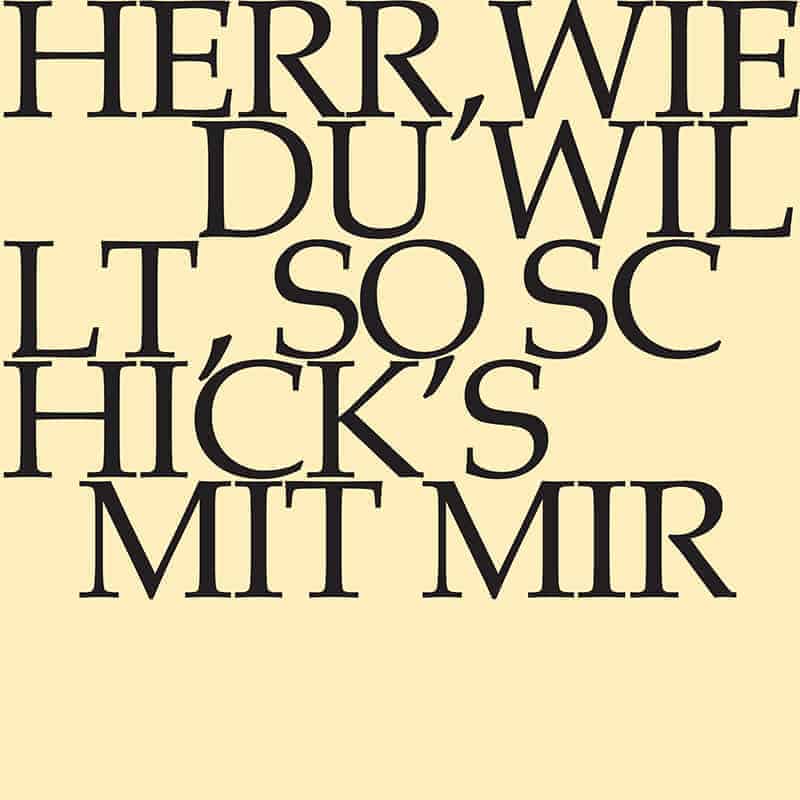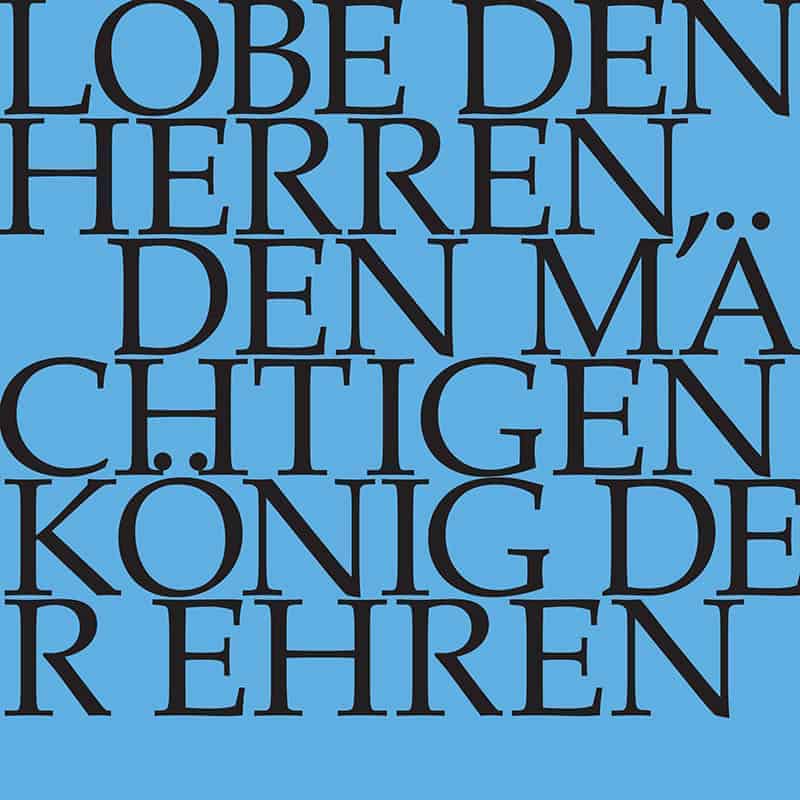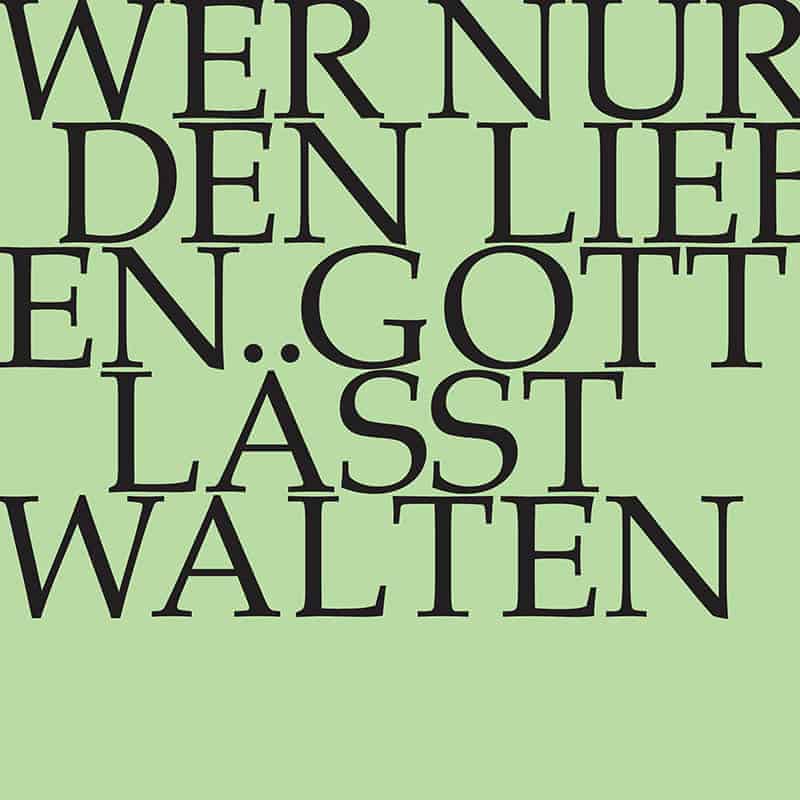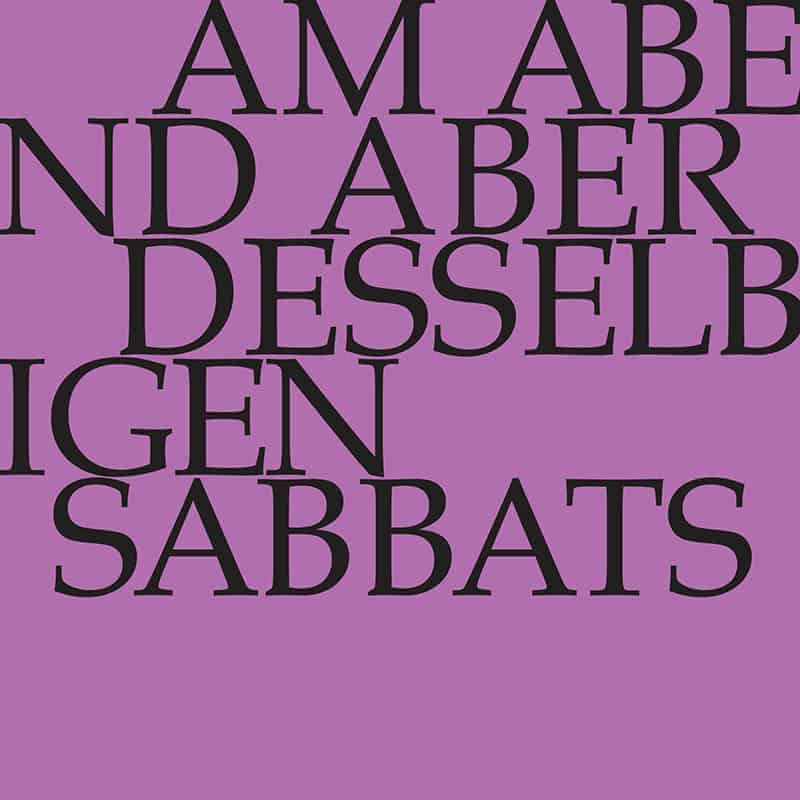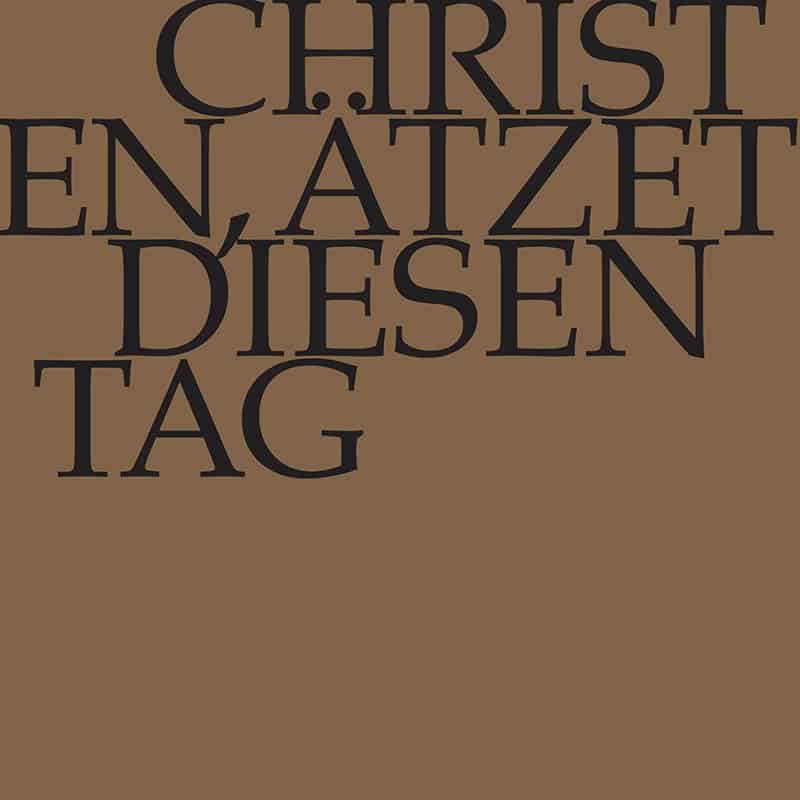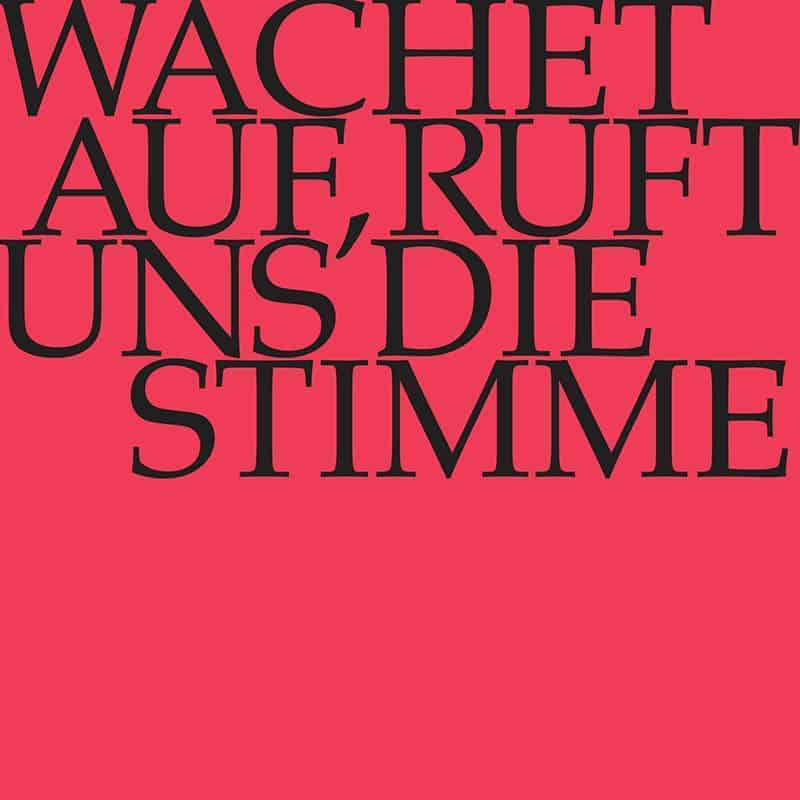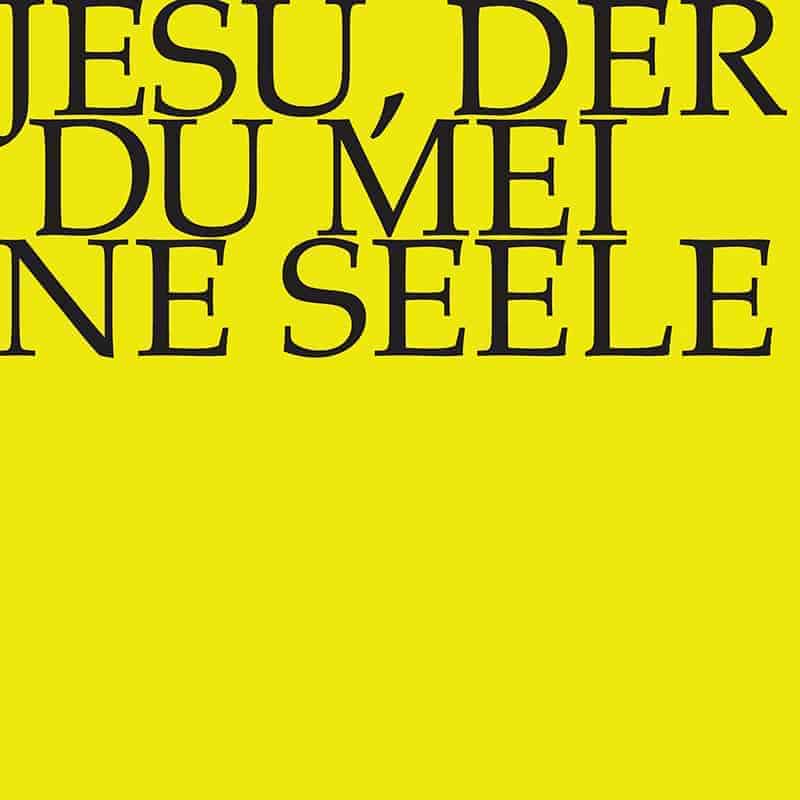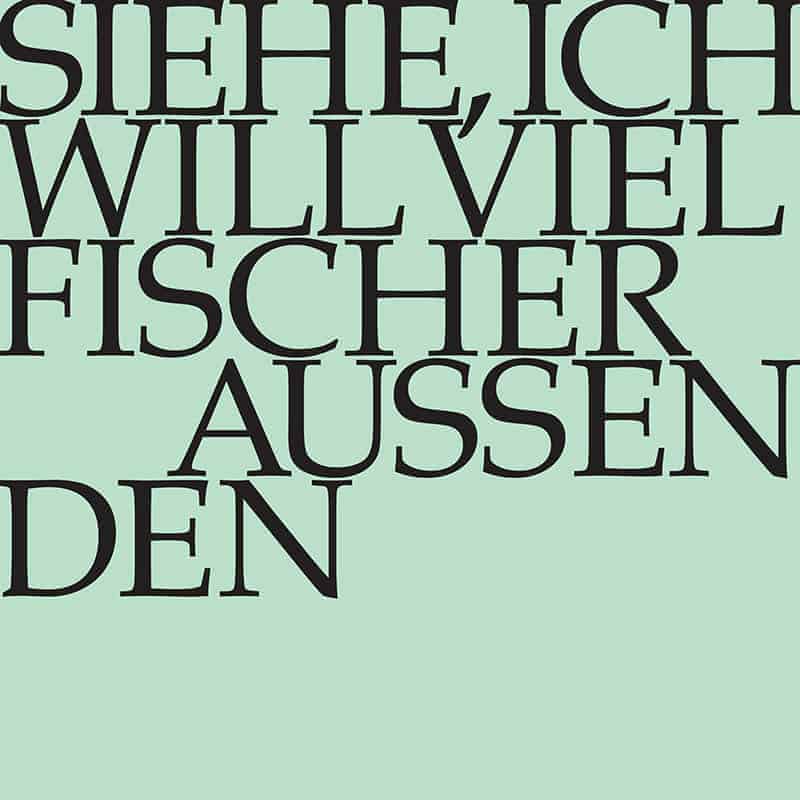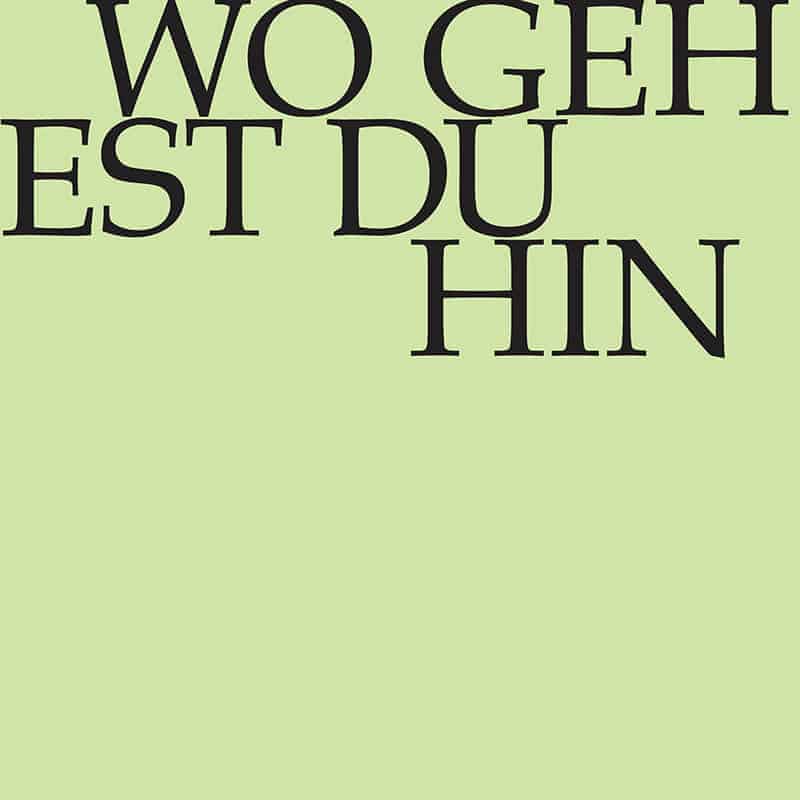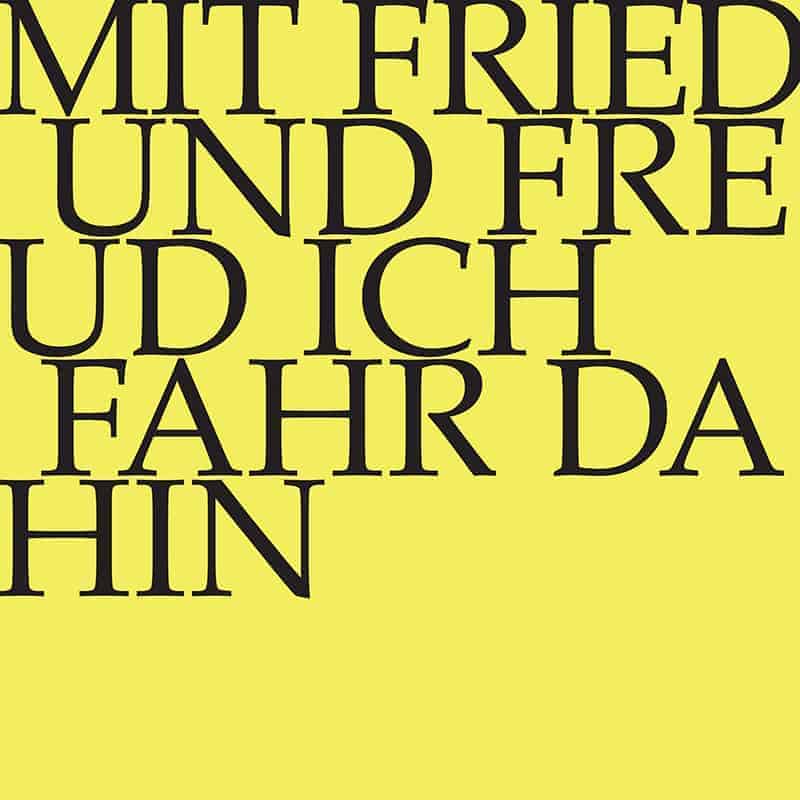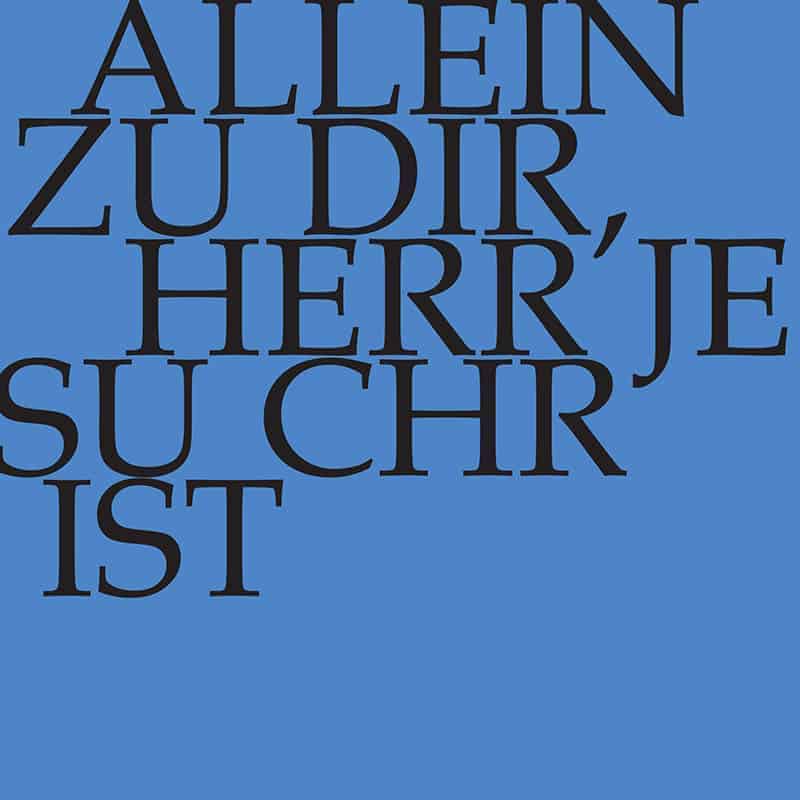(Dearest Emanuel, Lord of the faithful) for alto, tenor and bass, vocal ensemble, transverse flute I+II, oboe d’amore I+II, strings and basso continuo
Archives
Sei Lob und Ehr dem höchsten Gut
(Give laud and praise the highest good) for alto, tenor and bass, vocal ensemble, transverse flute I+II, oboe I+II, (oboe d’amore), strings and basso continuo
Wer weiß, wie nahe mir mein Ende
(Who knows how near to me my end is?) for soprano, alto, tenor and bass; vocal ensemble, horn, oboe I+II, strings and basso continuo
Ach Gott, vom Himmel sieh darein
(Ah God, from heaven look on us) for alto, tenor and bass, vocal ensemble, oboe I+II, trombone I-III, cornett, strings and basso continuo
Landsgemeindekantate «Alles Leben strömt aus dir»
for soprano, alto, tenor and bass, vocal ensemble and orchestra The Swiss town of Trogen and its main square situated in front of the church are traditionally associated with the Landsgemeinde assemblies of the canton of Appenzell Ausserrhoden – and thus with the hymn “Ode an Gott” (Ode to God) sung at the beginning of … Read More
Liebster Jesu, mein Verlangen
(Dearest Jesus, my desiring) for soprano and bass, vocal ensemble, oboe, strings and basso continuo
Ich bin ein guter Hirt
(I am a shepherd true) for soprano, alto, tenor and bass, oboe I+II, violoncello piccolo, strings and basso continuo
Ihr, die ihr euch von Christo nennet
(You who the name of Christ have taken) for soprano, alto, tenor and bass, transverse flute I+II, oboe I+II, strings und basso continuo Cantata BWV 164 was first performed in Leipzig on the 13th Sunday after Trinity in 1725. Nevertheless, the work could easily be mistaken as a latecomer to Bach’s Weimar cantata oeuvre: the … Read More
Was Gott tut, das ist wohlgetan
(What God doth, that is rightly done) for soprano, alto, tenor and bass, vocal ensemble, oboe I+II, taille d’hautbois, strings and basso continuo
Wahrlich, wahrlich, ich sage euch
(Truly, truly, I say to you) for soprano (vocal ensemble), alto, tenor and bass, oboe d’ amore I+II, bassoon, strings and basso continuo
Aus der Tiefen rufe ich, Herr, zu dir
(From the depths now do I call, Lord, to thee) for soprano, alto, tenor and bass, oboe, bassoon, violin, 2 violas, continuo Cantata BWV 131 is based on the early liturgical Penitential Psalm 130, one of the texts of the Christian tradition most frequently set to music. Thanks to a hand-written note ascribed to a … Read More
Nur jedem das Seine
(To each but what’s due him!) for soprano, alto, tenor and bass, violine I+II, viola, violoncello I+II, basso continuo The cantata “Nur jedem das Seine!” (To each but what’s due him!) BWV 163 forms something of a chamber-music pendant to the festive cantata BWV 119. This is not necessarily because it was composed in Weimar … Read More
Erhöhtes Fleisch und Blut
(Exalted flesh and blood) for soprano, alto, tenor and bass, transverse flute I+II, bassoon, strings and continuo
Herr, wie du willt, so schick’s mit mir
(Lord, as thou wilt, so deal with me) for soprano, tenor and bass, vocal ensemble, oboe I+II, horn, bassoon, strings and continuo Cantata BWV 73 “Herr, wie du willt, so schick’s mit mir” (Lord, as thou willt, so deal with me) belongs to Bach’s first Leipzig cantata cycle and was first performed in the Nikolaikirche … Read More
Lobe den Herren, den mächtigen König der Ehren
(Praise the Lord, the mighty King of honour) for soprano, alto, tenor and bass, vocal ensemble, trumpet I–III, timpani, oboe I+II, strings and continuo
Wer nur den lieben Gott läßt walten
(The man who leaves to god all power) for soprano, alto, tenor and bass, vocal ensemble, oboe I+II, strings and continuo Composed for the Fifth Sunday after Trinity in 1724, the cantata “Wer nur den lieben Gott läßt walten” (The man who leaves to God all power) at first appears to be a typical representative … Read More
Am Abend aber desselbigen Sabbats
(That evening, though, of the very same Sabbath) for soprano, alto, tenor and bass, oboe I+II, bassoon, strings and continuo. That Easter would in time be celebrated as a triumph of life over death could hardly have been foreseen by Christ’s disciples. For them, Good Friday and Easter Sunday brought not joy, but immeasurable pain: … Read More
Christen, ätzet diesen Tag
(Christians, etch ye now this day) for soprano, alto, tenor and bass, vocal ensemble, trumpets I-IV, timpani, oboe I-III, bassoon, strings and continuo. In 1957, Bach specialist Alfred Dürr wrote that BWV 63, more than any other of Bach’s cantatas, strives to unify the highest intensity of magnificence with the maximum level of economy. Indeed, … Read More
Wachet auf, ruft uns die Stimme
(Wake, arise, the voice calls us) for soprano, tenor and bass, vocal ensemble, horn, oboe I+II, taille, bassoon, strings and continuo. Through their interpretations of the ancient bible stories and parables, baroque church cantatas – almost as a second sermon – strove to provide guidance and instruction that was relevant to the daily lives of … Read More
Jesu, der Du meine Seele
(Jesus, thou who this my spirit) for soprano, alto, tenor and bass, vocal ensemble, flute, oboe I+II, horn, bassoon, strings and continuo. The cantata “Jesu der du meine Seele” (Jesus, thou who this my spirit) BWV 78 numbers among the most starkly contrasting compositions of Bach’s cantata oeuvre. Composed for the Fourteen Sunday after Trinity … Read More
Siehe, ich will viel Fischer aussenden
(See now, I will send out many fishers) for soprano, alto, tenor and bass, horn I+II, oboe d’amore I+II, taille, bassoon, strings and continuo.
Wo gehest Du hin
(Where to dost thou go?) for soprano, alto, tenor and bass, oboe, strings and continuo. “Wo gehest du hin?” (Where to dost thou go?) – First performed on 7 May 1724, cantata BWV 166 begins with a Bible quote of a mere four words that are at once concise and enigmatic, and difficult to interpret … Read More
Mit Fried und Freud ich fahr dahin
(In peace and joy do I depart) for alto, tenor and bass, vocal ensemble, horn, flute, oboe d’amore, strings and continuo. Throughout his chorale cantata project for the 1724/25 church year, Bach was not only required to compose compositions for the regular Sunday services, but also a hymn-based cantata for the Marian Feasts and other … Read More
Allein zu Dir, Herr Jesu Christ
(Alone to thee, Lord Jesus Christ) for alto, tenor and bass, vocal ensemble, oboe I+II, bassoon, strings and continuo. The chorale cantata “Allein zu dir, Herr Jesu Christ” (Alone to thee, Lord Jesus Christ), first performed on 3 September 1723, could – in analogy to a work by the Leipzig composer Johannes Weyrauch (1897–1977) – … Read More


